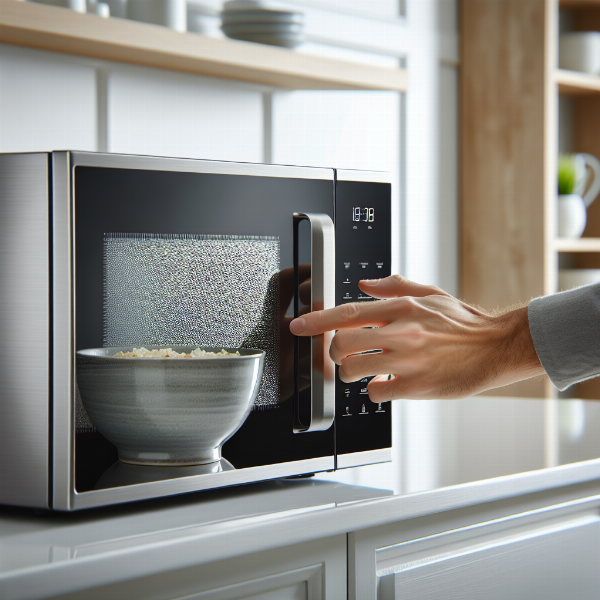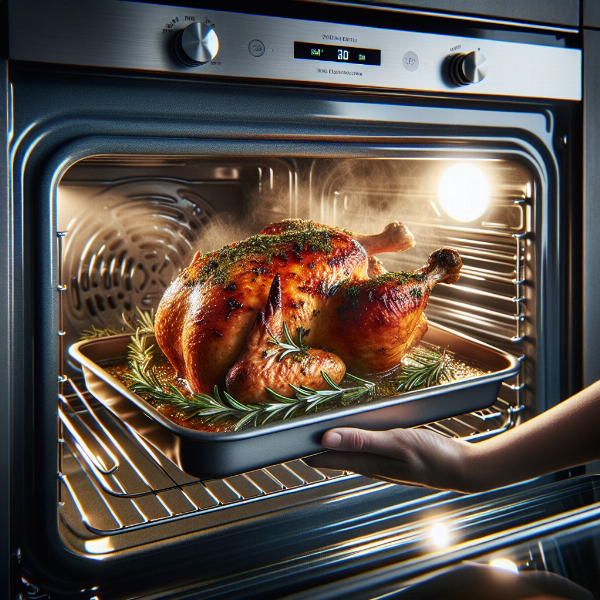A microwave oven is a kitchen staple, known for its speed and convenience. But can a microwave oven replace a conventional oven entirely? The answer isn’t a simple yes or no. Let’s delve into the capabilities and limitations of each appliance to help you decide if a microwave can truly replace your oven.
Microwave vs. Oven: A Detailed Comparison
Choosing between a microwave and a conventional oven depends heavily on your cooking needs and habits. While a microwave excels at quick heating and reheating, a conventional oven offers greater versatility for baking, roasting, and browning.
When a Microwave Shines: Speed and Simplicity
Microwaves are undisputed champions of speed. Need to reheat leftovers? Zap them in the microwave for a minute or two. Want a quick cup of tea? A microwave can boil water in seconds. This makes them perfect for busy weeknights or quick meals.
- Speed: Reheats and cooks food much faster than a conventional oven.
- Convenience: Simple operation and easy cleanup.
- Energy Efficiency: Generally uses less energy than a conventional oven for small tasks.
“Microwaves are lifesavers for busy families,” says culinary expert, Amelia Nguyen. “They’re perfect for reheating meals quickly and cooking simple dishes without the hassle of preheating a full-sized oven.”
 A modern microwave oven being used for quick and convenient meal preparation in a contemporary kitchen.
A modern microwave oven being used for quick and convenient meal preparation in a contemporary kitchen.
When a Conventional Oven is Essential: Baking, Roasting, and Browning
Conventional ovens provide the dry heat necessary for baking, roasting, and achieving that desirable browning on foods. Think crispy roasted vegetables, golden-brown cookies, and perfectly baked bread – these are all best achieved in a conventional oven.
- Even Heating: Distributes heat more evenly for consistent cooking results.
- Browning and Crisping: Achieves the Maillard reaction, which gives food a flavorful crust.
- Versatility: Can handle a wider range of cooking tasks, from baking cakes to roasting meats.
“While microwaves are convenient, they simply can’t replicate the results of a conventional oven when it comes to baking or achieving a beautiful crust on roasted meats,” notes experienced chef, David Rodriguez. “The dry heat and consistent temperature of a conventional oven are key for those culinary creations.”
 A delicious golden-brown roasted chicken coming out of a conventional oven, showcasing perfect baking results.
A delicious golden-brown roasted chicken coming out of a conventional oven, showcasing perfect baking results.
Can a Microwave Oven Replace an Oven? It Depends on Your Cooking Style
So, can a microwave replace an oven? For some, especially those who prioritize speed and primarily reheat or cook simple meals, a microwave might suffice. However, for those who enjoy baking, roasting, and achieving a beautiful brown finish on their food, a conventional oven remains indispensable.
Considerations for Replacing Your Oven with a Microwave
- Your Cooking Habits: Do you mostly reheat food or cook elaborate meals?
- Space Constraints: Is kitchen space limited? A microwave takes up less space than a conventional oven.
- Budget: Microwaves are generally less expensive than conventional ovens.
Expanding Your Microwave Horizons: Beyond Reheating
While microwaves may not entirely replace conventional ovens, they are capable of more than just reheating leftovers. Modern microwaves offer features like convection cooking and grilling, expanding their culinary possibilities.
- Convection Microwaves: These microwaves combine microwave energy with convection heating, allowing for some degree of browning and crisping.
- Grill Microwaves: These models incorporate a grilling element, allowing you to grill foods like vegetables and meats.
Making the Right Choice for Your Kitchen
Ultimately, the decision of whether a microwave can replace your oven depends on your individual needs and cooking style. If you value versatility and the ability to bake and roast, a conventional oven is a must-have. However, if speed and convenience are your priorities, a microwave might be sufficient, particularly if supplemented with a countertop toaster oven for occasional baking or broiling.
“Consider your lifestyle and cooking habits,” advises renowned food blogger, Maria Garcia. “If you’re constantly on the go and prioritize quick meals, a microwave might be perfect. But if you love to experiment in the kitchen and enjoy the art of baking and roasting, a conventional oven is an essential investment.”
FAQs: Microwave vs. Oven
- Can you bake a cake in a microwave? While possible, microwaved cakes often lack the texture and browning achieved in a conventional oven.
- Is a microwave oven more energy-efficient? Generally, yes, especially for small tasks. However, for longer cooking times, a conventional oven might be more efficient.
- Can you roast vegetables in a microwave? While you can cook vegetables in a microwave, they won’t achieve the same roasted flavor and texture as in a conventional oven.
- What are the advantages of a convection microwave? Convection microwaves offer improved browning and crisping compared to standard microwaves.
- Can you grill in a microwave? Some microwaves have a grilling element, allowing for limited grilling capabilities.
- Are microwaves safe? Yes, microwaves are safe when used properly.
- Can you cook frozen meals in a microwave? Yes, microwaves are ideal for quickly and easily cooking frozen meals.
Can a Microwave Oven replace an oven? The answer ultimately depends on your individual cooking needs and preferences. While microwaves excel at speed and convenience, conventional ovens offer the versatility and browning capabilities essential for many cooking tasks. Consider your lifestyle and cooking style to make the best decision for your kitchen.